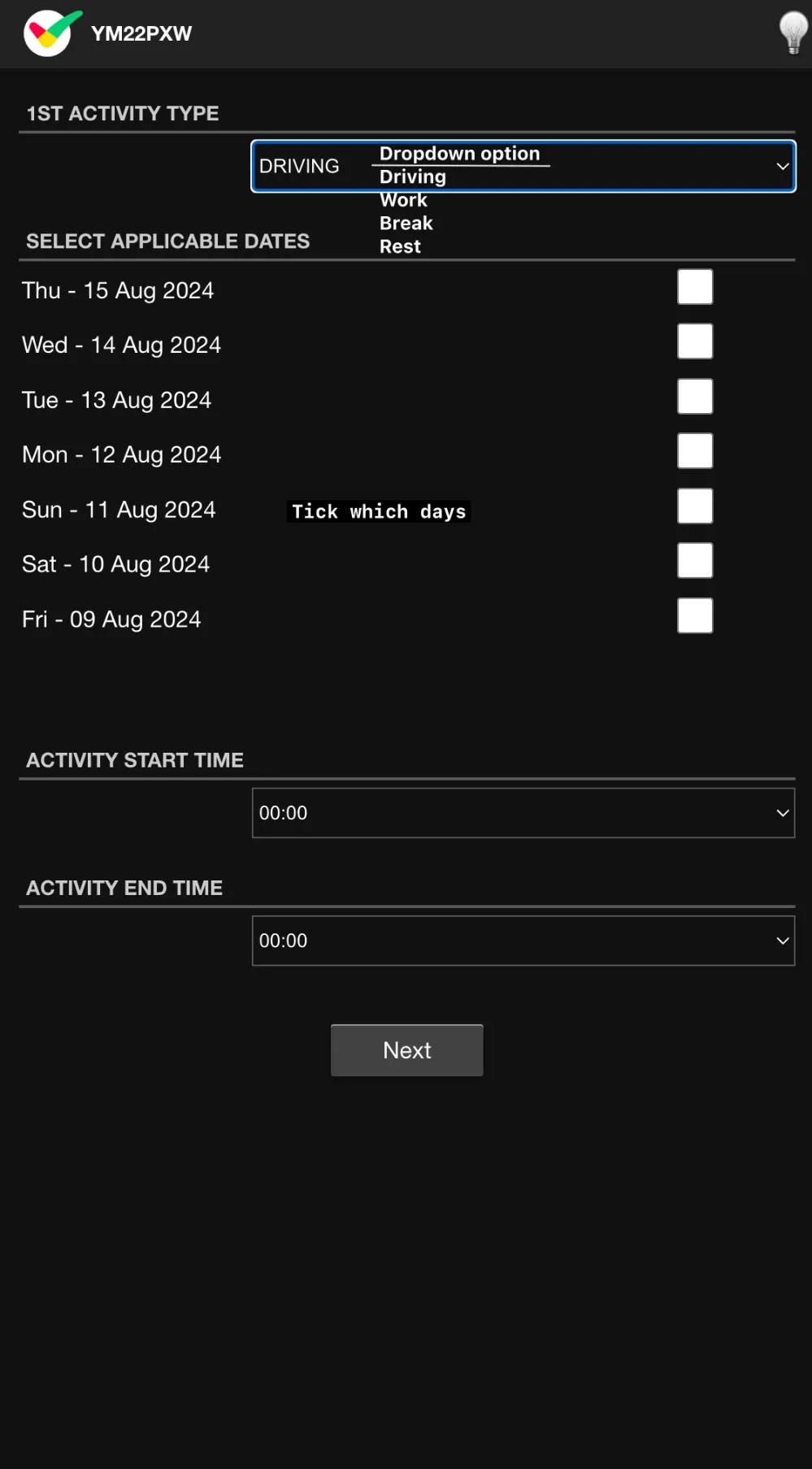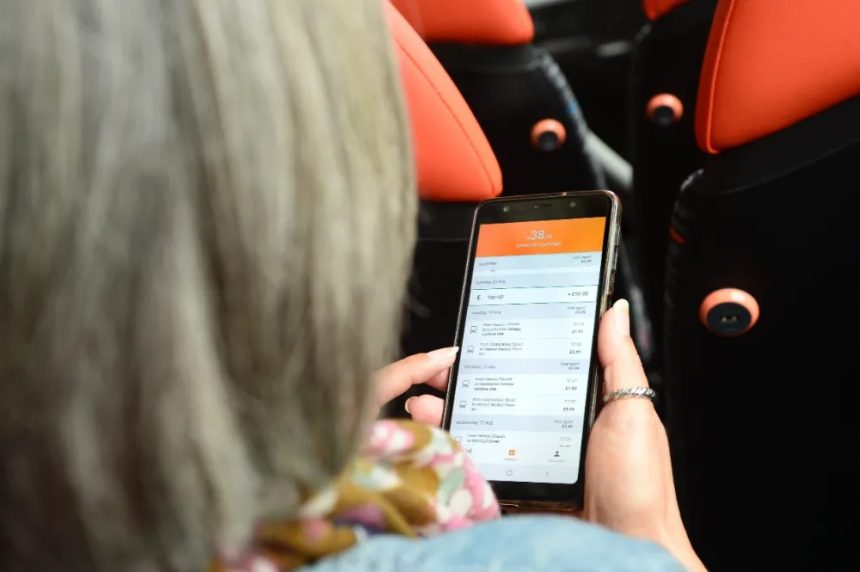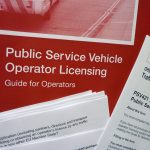When Trentbarton’s mango app was launched in September 2020, routeone asked, “is this the world’s most advanced ticketing app?”
The operator believed so and, despite the lightning pace of technological improvement, four years on, the operator still claims that.
It was at the time believed to be the first account-based ticketing app that recorded the start and end of the bus journey, giving the operator much-needed journey detail. Using a QR barcode, passengers scan on and off and the back-end ensures they never have to pay more than the maximum fare.
The Derbyshire-based business has long been seen as an innovator. Mango started as a card in 2009 and it was something of a pioneer in the UK bus industry. With a vision of cutting down on cash transactions and speeding up boarding times, the card operated in a similar way to the app, allowing passengers to top up their account online and use it via tap on, tap off.
Trentbarton Group Projects Director Mark Greasley joined the operator in 1996 and led the development of mango. “It was the first of its kind and I think it’s leading in its flexibility,” he says of the mango app, which was created by ACT, a Fujitsu company.
Explaining the app’s versatility, he adds: “Because it was originally all on the card, you couldn’t have as many rules and caps. Moving it to the app has meant it’s pretty infinite in terms of all the caps and the business rules and the engine in the background that we can apply to things.”
We really think we can grow and expand it to more operators, ensuring a common platform for customers, allowing seamless travel – Mark Greasley
Since mango was launched, ticketing apps have become commonplace and certain suppliers have begun to dominate the market while offering bespoke products for operators.
However, Mark adds: “We obviously assess the market for other platforms. Others have made huge leaps and bounds, but a lot of them are product-based, where you’ve got to buy into a certain pass for a certain period, whereas this allows the customer to know they’re never going to pay more than they’ve got to.
“They just top up with money and travel safe in the knowledge they’re automatically going to get the best value caps for their journeys. It just simplifies it, as much as possible, no pre-planning needed — whether travelling every day, or just occasionally, it’s the right price guaranteed. Young people and others who don’t have contactless payment cards particularly benefit too.”
Passengers are even allowed to go into a negative balance, as long as they start the day with a penny on their account, which is customer-friendly and further cuts down on possible delays on boarding.
As well as being able to expand the number of entitlements for specific groups, it has made it easier for Trentbarton to offer specific schemes, for example that with West Notts College in conjunction with Stagecoach. The app could become even more flexible if the government’s £2 bus fare cap in England ended, Mark says.
The operator is soon to switch to Carriage Return Transport Solutions to develop the app even further. Mark says: “Fujitsu has been great with it, but we really want to bespoke-tailor it and add even more functionality and other new things to it.
“We really think we can grow and expand it to more operators, ensuring a common platform for customers, allowing seamless travel. It already works across three different operators in the group, all with different rules and fare charts.”
A downside with apps is a possibility of alienating certain technology-wary passengers — with around 20% of adults over-65 not owning a smartphone, according to one 2023 survey. However, Trentbarton is seemingly trying to address that problem.
“Our customer services team have actively spent a lot of time helping people to adopt and get on to the platform,” says Mark, who adds that topping up will be made easier: “We’re going to expand it to offer top-ups in networks of shops, travel shops and other retailers in the future. And I know our customer services team have spoken to numerous people and done lots of handholding; we’ve even recommended certain types of phone.”
Compliance checking
Compliance and fleet management system CheckedSafe has long been at the forefront of innovation. Two of its newer features are set to make life much easier for operators.
CheckedSafe is just about to launch its “GB Domestic Hours” app, which is designed to inform drivers and operators of infringements as they happen.
The app is aimed at taking the strain out of keeping on top of the complexities of drivers’ hours regulations, given that noncompliance could mean the loss of O-Licences.
Gary Hawthorne, Co-founder and Director of CheckedSafe, says: “We believe that we are the first company in the UK to do this. It’s a highly complex area but also very exciting and again a huge industry game-changer. Most companies still record data on paper in the W20 books, so the move to digital is a huge leap forward.”

Aside from ensuring operators are compliant with drivers’ hours legislation and the Working Time Directive, the system removes the need for paper records. Driver fatigue and rest periods can be managed via notifications. Meanwhile, back at base, the operator can check drivers’ hours records and produce accurate reports. This is charged at £1 per week per driver, with a deal available if using more than one paid service from the platform.
Meanwhile, CheckedSafe launched a pioneering new driver licence checking service last year. With a direct link to the DVLA Access to Driver Data service, operators can use the system for £1.60 per check on a pay-as-you-go basis. It uses optical character recognition that has 95% accuracy and CheckedSafe highlights ease of use as one of the key features.
Gary says: “We had our first audit of the services this year and the auditors told us that we are the only company offering remote licence-checking wherein we read the data on the driving licence by taking a picture of it and parsing the data. The makes the whole process fully remote.”
The system checks for licence type, driver offences and points on licence, as well as tachograph and Certificate of Professional Competence expiry date.
The software is integrated into CheckedSafe’s fleet management platform, which also includes vehicle compliance, dynamic risk assessment and the lone worker app. However, it can also be used as a standalone solution.
Most companies still record data on paper in the W20 books, so the move to digital is a huge leap forward – Gary Hawthorne
The business’s vehicle compliance app is well-established in the coach and bus sectors, but the industry’s standards are seemingly having an effect elsewhere too. Along with many other sectors, including grey fleets, CheckedSafe has recently reached an agreement with Pendle Borough Council such that all private hire and hackney carriages issued with licences by the council will have to — under threat of sanctions — use the supplier’s app for daily walk-round checks.
Gary says: “We have been advocating for some time for all such vehicles to be subject to a pre-use daily walk-round check and now Pendle Borough Council has taken the bold move of mandating the same. We anticipate that other local authorities will watch this with interest and hopefully follow suit.”



























